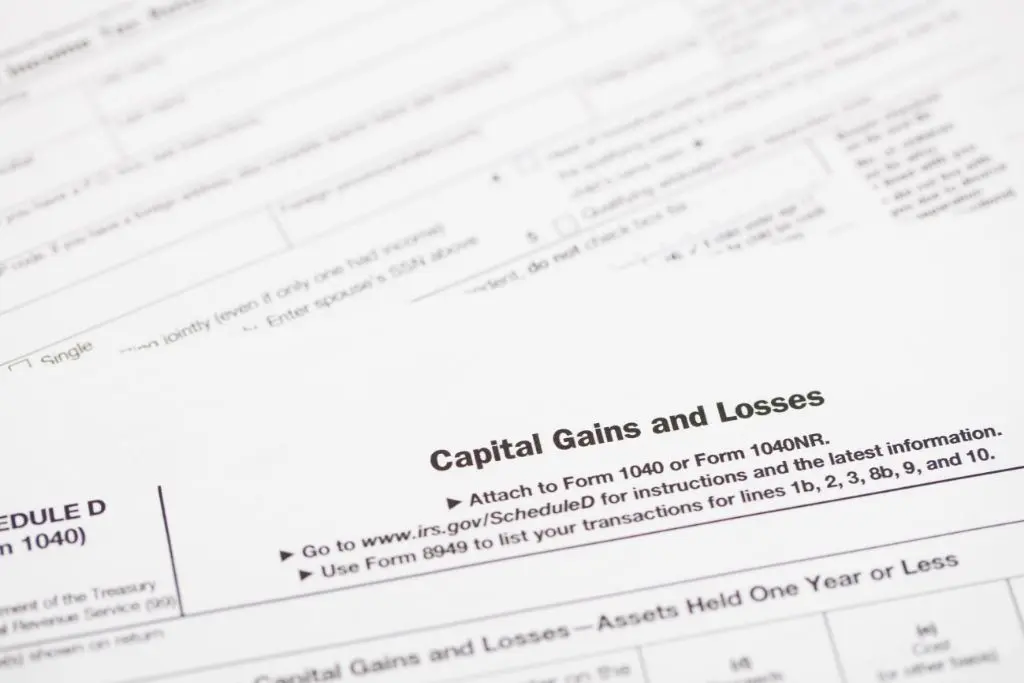Capital gains tax in Colorado hits anyone selling assets like stocks, real estate, or other investments for a profit. Colorado taxes capital gains as part of state income tax at a flat rate, with only limited subtractions available for specific cases such as qualifying agricultural property.

If you know how both federal and state rules work, you’re a step ahead – no one likes a surprise tax bill, and a little planning can go a long way.
What Are Capital Gains? The Core Concepts
Capital gains are just the profit you make when you sell something for more than you paid. They matter for taxes because the rules change depending on how long you held the asset, what kind of asset it is, and whether you’ve actually sold it yet.
Defining Capital Gains: Realized vs. Unrealized
A realized capital gain happens when you actually sell the asset and pocket the profit. So, if you buy stock for $5,000 and sell it for $7,000, that $2,000 is a realized gain and it’s taxable. Nothing’s taxed until you sell.
An unrealized capital gain is just the paper increase in value before you sell. If your stock is worth $7,000 but you’re still holding it, that $2,000 isn’t taxed yet. Simple enough – no sale, no tax.
This difference is why people sometimes hold onto assets longer, hoping to offset capital gains in the future. Unrealized gains might affect your decisions, but they don’t mean you owe anything right now.
Short-Term vs. Long-Term Capital Gains: A Federal Distinction
The IRS sorts capital gains into short-term and long-term. Short-term gains (assets held for a year or less) get taxed as regular income, which can be steep.
Long-term gains (assets held more than a year) usually get a break – rates run from 0% up to 20%, depending on your income. Basically, the longer you hold, the better your tax situation can get.
For a quick look:
| Holding Period | Tax Treatment | Typical Rate Range |
| 1 year or less | Ordinary income rates | 10% – 37% |
| More than 1 year | Preferential capital gains rates | 0% – 20% |
States like Colorado, though, don’t make this distinction – they just tax all gains as regular income.
What Qualifies As A Capital Asset?
A capital asset is pretty much anything in your investment portfolio for personal or investment reasons: stocks, bonds, real estate, or even stuff like art or jewelry. If it’s not business inventory or supplies, odds are it’s a capital asset.
Some examples:
- Real estate that’s not business inventory
- Stocks, bonds, mutual funds
- Personal property (art, jewelry, etc.)
But things like business inventory and accounts receivable aren’t capital assets – they’re taxed differently. Knowing what counts helps you figure out what kinds of sales might trigger capital gains tax.
Federal Capital Gains Tax: Rates And Rules For 2024 & 2025
Federal Short-Term Capital Gains Tax Rates (Ordinary Income Brackets)
Short-term gains (assets held for less than a year) are taxed just like your paycheck or business income – same brackets, same rates.
For 2025, those brackets run from 10% up to 37%. So, if you’re a high earner, your short-term gains could get taxed at the top rate.
Check the IRS’s capital gains guidance for the most current thresholds – it changes every year.
Federal Long-Term Capital Gains Tax Rates (0%, 15%, 20% – With Clear Tables)
Long-term capital gains (investment property and other assets held over a year) get their own tax rates: 0%, 15%, or 20%, depending on your taxable income.
For 2025, here’s how it shakes out:
| Filing Status | 0% Rate | 15% Rate | 20% Rate |
| Single | Up to $47,025 | $47,026 – $518,900 | Over $518,900 |
| Married Filing Jointly | Up to $94,050 | $94,051 – $583,750 | Over $583,750 |
| Head of Household | Up to $63,000 | $63,001 – $551,350 | Over $551,350 |
Most people land in the 15% bracket, but if you’re a high roller, you could hit 20%.
Colorado Capital Gains Tax: State-Specific Information
Unlike the federal capital gains tax implemented, Colorado state taxes capital gains just like any other income – flat rate, no special treatment for holding period. There’s a limited capital gains tax subtraction for certain agricultural property (farm assets), but that’s about it. Federal exclusions, like the home sale exclusion, still count when figuring your total capital gains taxes.
Colorado’s Flat Income Tax Rate And How It Applies To Capital Gains
Colorado has a flat income tax rate of 4.4%. Doesn’t matter if your income is from wages, dividends, or selling assets – it’s all taxed at 4.4%.
So, if you make $50,000 in capital gains, the state capital gains tax is $2,200 flat rate. No brackets, no progressive rates. That’s both good and bad, depending on your situation.
The Colorado Capital Gain Subtraction For Agricultural Property
There is a capital gain subtraction for certain property – mainly agricultural land, some livestock, and interests in Colorado-based businesses – if you bought after May 9, 1994, and held it for at least five years.
If you qualify, you can subtract the gain from your Colorado taxable income. The rules are pretty specific, though. The Colorado Department of Revenue’s guidance spells it out.
Real-World Example: Calculating Federal And Colorado Capital Gains Tax
Let’s say you sell stock and make a $100,000 gain. Federally, if you held it over a year, you might owe 15% – so, $15,000. Colorado takes 4.4%, or $4,400. Unless your stock sale qualifies for the agricultural subtraction, you’re paying both.
Strategic Tax Planning To Minimize Capital Gains Tax Liability
If you’re selling investments or property in Colorado, there are a few smart ways to lower your capital gains taxes. From using losses to offset gains, to deferring taxes or making use of tax-advantaged accounts, a little planning can go a long way.
1. Use Losses to Offset Gains
Tax-loss harvesting is just a fancy term for selling underperforming investments to offset your winners. If your losses are bigger than your gains, you can use up to $3,000 a year to reduce your regular income and carry the rest forward.
It works best in volatile markets. Just avoid the IRS “wash-sale rule” – don’t rebuy the same investment within 30 days.
2. Exclude Gains When Selling Your Home
If you’ve owned and lived in your home for at least two out of the last five years, you might be able to exclude up to $250K in profit ($500K if married). In Colorado, where home prices have jumped, that’s a big deal.
Track what you paid, improvements, and costs to sell – it all affects your taxable capital gain.
3. Defer Taxes with a 1031 Exchange
Selling an investment property? A 1031 exchange lets you roll those proceeds into a new property and delay paying capital gains tax. You have 45 days to identify a new property and 180 days to close the deal.
It’s not a permanent tax break – you’ll owe taxes if you cash out later. Make sure to work with a qualified tax professional to avoid disqualifying the exchange.
4. Take Advantage of Retirement Accounts
Investing through accounts like a 401(k) or traditional IRA helps your money grow tax-deferred. With a Roth IRA, you pay taxes up front, but qualified withdrawals are tax-free.
If your employer matches contributions, that’s extra free money on top of the tax benefits.
5. Explore Self-Directed IRAs
Want to invest in more than just stocks? A Self-Directed IRA lets you put money into real estate, private companies, or even gold. These accounts offer more control, but also more rules. Some investments are off-limits, and mistakes can cost your bright financial future.
6. Give to Charity, Save on Taxes
Donating assets through a Charitable Remainder Trust (CRT) lets you reduce taxes, get income for a while, and give the rest to charity later. A Charitable Lead Trust (CLAT) does the opposite – charity first, family later.
These are best for people with larger estates, but they’re great for combining giving with tax planning.
7. Time Big Sales Carefully
Holding assets for over a year usually qualifies you for a lower tax bracket. If you’re selling a business, property, or other profitable asset, consider an installment sale to spread the tax bill over several tax years.
Plan big sales around other income events to avoid jumping into a higher tax bracket.
When And Why To Consult A Professional Financial Advisor
Dealing with capital gains taxes in Colorado can get confusing fast, especially with both federal and state rules in play. A good advisor can help make sense of it all and keep you compliant.
Situations where professional advice really matters:
- Selling appreciated assets (real estate or land)
- Navigating 1031 exchanges or figuring out principal residence exclusions
- Filing as a non-resident with Colorado property
A financial advisor or tax pro can spot ways to significantly reduce your tax bill – maybe by timing a sale for long-term rates or using deductions unique to Colorado.
| Reason to Consult | Benefit |
| Complex property sale | Clarifies tax obligations |
| Non-resident ownership | Explains filing requirements |
| Tax planning | Identifies legal ways to reduce liability |
If you’re juggling multiple properties or large gains, professional advice is even more important. The Colorado capital gains tax guide for non-residents highlights how rules can shift based on residency and income sources.
Advisors can also help you understand what exemptions you qualify for. Maybe you’re eligible for the federal home sale exclusion. Since tax laws change more often than most of us would like, working with a pro helps you avoid costly mistakes.
Frequently Asked Questions
Colorado taxes capital gains as part of its flat state income tax, but there are some exemptions and deductions for certain situations. Federal rules are also in the mix, especially for real estate and long-term investments.
What is the current long-term capital gains tax rate in Colorado?
There’s no separate long-term capital gains rate in Colorado. All capital gains are taxed at the state’s flat income tax rate, which is 4.4% in 2025 – doesn’t matter if the gain is short- or long-term.
How is capital gains tax calculated on real estate sales in Colorado?
First, you calculate the gain under federal rules (sale price minus adjusted basis). Then Colorado applies its flat income tax rate, unless you qualify for the Colorado capital gain subtraction.
Are non-residents subject to Colorado state capital gains tax?
Yes, non-residents pay Colorado state income tax on capital gains from selling property located in Colorado. That includes real estate and other tangible assets in the state.
What are the strategies to legally reduce capital gains tax liability in Colorado?
You might reduce your liability with federal exclusions (like the primary residence exclusion). At the state level, the Colorado capital gain subtraction could apply if you meet the requirements. Other options include timing your sales and offsetting gains with losses.
Does Colorado have a separate capital gains tax rate from the federal rate?
Nope. Colorado taxes all gains at the same flat state income tax rate. Federal rules still apply, with their own short- and long-term capital gains rates.
What changes, if any, have been made to the Colorado capital gains tax for the year 2025?
For 2025, Colorado’s still treating capital gains as ordinary income – so, yep, the flat 4.4% rate applies. Taxpayers who meet the criteria can keep claiming the subtraction for certain long-held property bought after May 9, 1994.
